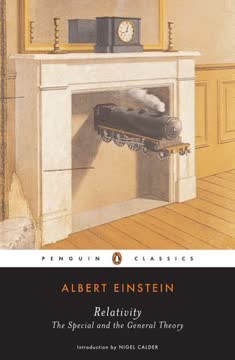Key Takeaways
1. Consciousness: The ultimate mystery of subjective experience
How on earth can the electrical firing of millions of tiny brain cells produce this – my private, subjective, conscious experience?
The hard problem. Consciousness is the most obvious yet perplexing aspect of human experience. It involves the subjective, qualitative aspects of our mental lives – the "what it's like" to see colors, feel emotions, or think thoughts. This phenomenon has puzzled philosophers and scientists for centuries, leading to the formulation of the "hard problem" of consciousness: how can physical processes in the brain give rise to subjective experiences?
Theories and approaches. Various theories attempt to explain consciousness:
- Dualism: Mind and body are separate substances
- Materialism: Consciousness arises from physical brain processes
- Panpsychism: Consciousness is a fundamental property of the universe
- Illusionism: Consciousness as we perceive it is an illusion
Despite intense research and debate, no single theory has gained widespread acceptance, highlighting the profound challenge consciousness poses to our understanding of reality and ourselves.
2. The brain's role in consciousness: Complex neural processes
Inside the brain there are numerous processes going on in parallel, coordinating perceptions and thoughts, and controlling our behaviour.
Neural correlates of consciousness. Neuroscience has made significant strides in identifying brain regions and processes associated with conscious experiences. Key findings include:
- The role of the thalamus and cortex in generating conscious awareness
- Specific neural patterns associated with different conscious states
- The importance of information integration across brain regions
Challenges in brain-consciousness link. However, several issues complicate our understanding:
- The distributed nature of brain processing
- The lack of a central "consciousness center" in the brain
- The difficulty in explaining how neural activity translates to subjective experience
These challenges highlight the need for new conceptual frameworks and experimental approaches to bridge the gap between brain activity and conscious experience.
3. Time and space in consciousness: Challenging our perceptions
No one has yet succeeded in bridging the fathomless abyss, the great chasm or the explanatory gap between inner and outer, mind and brain, or subjective and objective.
Time perception anomalies. Our subjective experience of time often diverges from objective measurements, revealing intriguing aspects of consciousness:
- Libet's experiments on the timing of conscious decisions
- The apparent lag between neural activity and conscious awareness
- The "backwards referral" of conscious experiences in time
Spatial aspects of consciousness. Our perception of space and our body's position within it can also be manipulated:
- Out-of-body experiences and their neurological basis
- The rubber hand illusion and body ownership
- Spatial neglect in brain-damaged patients
These phenomena challenge our intuitive notions of how consciousness relates to time and space, suggesting that our subjective experiences may be constructed in complex ways by the brain.
4. The grand illusion: Rethinking visual consciousness
The findings of change and inattentional blindness challenge the way most of us naturally seem to think about our own visual experiences.
Change blindness. Experiments reveal our surprising inability to notice large changes in visual scenes, challenging the idea that we maintain a detailed, continuous representation of our visual world.
Inattentional blindness. We often fail to notice unexpected objects or events when our attention is focused elsewhere, even when they are in plain sight.
Implications for consciousness. These phenomena suggest that our visual consciousness may be far more limited and constructed than we intuitively believe:
- Our perception of a rich, detailed visual world may be an illusion
- Consciousness may involve the dynamic creation of limited, task-relevant representations
- Attention plays a crucial role in determining what enters our conscious awareness
These findings have profound implications for our understanding of consciousness and perception, suggesting that our subjective experience may be a highly filtered and constructed version of reality.
5. The elusive self: Exploring the nature of identity
Bundle theory turns the problem upside down, making the viewer into an actor and the visions into actions.
Challenges to the unified self. Various phenomena and experiments challenge our intuitive sense of a unified, continuous self:
- Split-brain patients and multiple consciousnesses
- Dissociative identity disorder and multiple personalities
- Buddhist concepts of no-self and the illusion of a permanent identity
Theories of self. Different approaches attempt to explain our sense of self:
- Ego theories: Posit a real, enduring self
- Bundle theories: View the self as a collection of experiences without a central entity
- Narrative theories: See the self as a story we construct and tell ourselves
These perspectives force us to reconsider the nature of personal identity and its relationship to consciousness, suggesting that our sense of self may be more fluid and constructed than we typically assume.
6. Free will: Questioning our sense of conscious control
Dennett argues that the Cartesian theatre does not exist.
Challenges to free will. Scientific findings and philosophical arguments have called into question our traditional notion of free will:
- Libet's experiments on the timing of conscious decisions
- The influence of unconscious processes on our choices
- The problem of reconciling free will with determinism or randomness
Implications and alternatives. These challenges have led to various perspectives on free will and responsibility:
- Compatibilism: Redefining free will in ways compatible with determinism
- Hard incompatibilism: Rejecting the possibility of free will
- Illusionism: Viewing our sense of free will as a useful fiction
These debates have profound implications for our understanding of consciousness, morality, and personal responsibility, forcing us to reconsider the nature of human agency and decision-making.
7. Altered states: Expanding our understanding of consciousness
Cannabis contains over sixty other cannabinoids and many other constituents that have slightly different effects on the brain and the immune system, and may also interact with each other.
Diverse altered states. A wide range of experiences can alter our normal state of consciousness:
- Psychoactive drugs (e.g., psychedelics, cannabis, anesthetics)
- Meditation and contemplative practices
- Sleep and dreams
- Near-death experiences and out-of-body experiences
Insights from altered states. Studying these phenomena can provide valuable insights into consciousness:
- The malleability of our perception and sense of self
- The role of different brain systems in generating conscious experiences
- The potential for expanded or alternative modes of awareness
Research into altered states challenges our assumptions about the nature and limits of consciousness, suggesting that our normal waking state may be just one of many possible modes of awareness.
8. The evolution of consciousness: Unresolved questions
Is consciousness an adaptation? It might seem that it must be, because maladaptive characteristics are soon weeded out by selection, but there are two other main possibilities: consciousness might be a useless by-product, or it might be an inseparable component of something else that is adaptive (even if it does not appear to be).
Evolutionary perspectives. Different theories propose various origins and functions for consciousness:
- As an adaptation for social cognition and theory of mind
- As a byproduct of other cognitive abilities
- As an intrinsic aspect of complex information processing
Challenges in studying consciousness evolution. Several factors complicate our understanding of how consciousness evolved:
- The difficulty in defining and measuring consciousness across species
- The lack of fossil evidence for subjective experiences
- The challenge of distinguishing between conscious and non-conscious processes in animals
These unresolved questions highlight the need for interdisciplinary approaches combining neuroscience, psychology, philosophy, and evolutionary biology to unravel the mystery of consciousness and its place in the natural world.
Last updated:
FAQ
What's "Consciousness: A Very Short Introduction" about?
- Overview of Consciousness: The book provides a concise exploration of consciousness, addressing its complexities and the challenges it presents to philosophers and scientists.
- Historical Context: It delves into the historical struggle to understand consciousness, highlighting how it has been a topic of debate for millennia.
- Modern Approaches: The book discusses contemporary studies in psychology, biology, and neuroscience that attempt to tackle the "hard problem" of consciousness.
- Philosophical Perspectives: It examines various philosophical theories, including dualism and materialism, and their implications for understanding consciousness.
Why should I read "Consciousness: A Very Short Introduction"?
- Expert Insight: Written by Susan Blackmore, an expert in the field, the book offers authoritative insights into the study of consciousness.
- Accessible Introduction: It serves as an accessible entry point for anyone interested in the complex subject of consciousness, without requiring prior knowledge.
- Broad Coverage: The book covers a wide range of topics, from the nature of self and free will to altered states of consciousness and the evolution of consciousness.
- Stimulating Content: It challenges readers to think critically about their own experiences and the nature of consciousness itself.
What are the key takeaways of "Consciousness: A Very Short Introduction"?
- The Hard Problem: Consciousness is a deeply complex issue, with the "hard problem" being how subjective experiences arise from physical brain processes.
- Illusion of Self: The book suggests that the self may be an illusion, a concept that challenges traditional views of identity and consciousness.
- Consciousness and Evolution: It explores whether consciousness is an evolutionary adaptation or a byproduct of other cognitive processes.
- Role of Consciousness: The book questions the role of consciousness in decision-making and whether free will is an illusion.
What is the "hard problem" of consciousness as discussed in the book?
- Definition: The "hard problem," coined by philosopher David Chalmers, refers to the challenge of explaining how subjective experiences arise from physical brain processes.
- Subjectivity: It emphasizes the difficulty in understanding how objective brain functions translate into personal, subjective experiences.
- Philosophical Debate: The problem has led to various philosophical theories, including dualism and materialism, each attempting to address this gap.
- Ongoing Mystery: Despite advances in neuroscience, the hard problem remains unsolved, highlighting the complexity of consciousness.
How does Susan Blackmore address the concept of self in the book?
- Illusion of Self: Blackmore suggests that the self is an illusion, a temporary construct rather than a persistent entity.
- Bundle Theory: The book discusses bundle theory, which posits that the self is a collection of experiences rather than a singular, continuous entity.
- Buddhist Perspective: It aligns with Buddhist teachings that reject the notion of a permanent self, viewing it as a source of suffering.
- Implications: This perspective challenges traditional views of identity and has implications for understanding consciousness and personal responsibility.
What are some theories of consciousness explored in the book?
- Dualism: The book examines dualism, the idea that mind and body are separate, and its challenges in explaining consciousness.
- Materialism: It discusses materialism, which posits that consciousness arises from physical processes in the brain, yet struggles with the subjective nature of experience.
- Global Workspace Theory: This theory suggests that consciousness arises from information being processed in a global workspace within the brain.
- Multiple Drafts Theory: Proposed by Daniel Dennett, this theory argues against a central "theatre" of consciousness, suggesting instead that multiple processes occur in parallel.
How does the book explore the relationship between consciousness and free will?
- Free Will Debate: The book delves into the philosophical debate on whether free will exists or is an illusion.
- Libet's Experiments: It discusses Benjamin Libet's experiments, which suggest that brain activity precedes conscious decision-making, challenging the notion of free will.
- Conscious Veto: Libet's idea of a "conscious veto" is explored, suggesting that while we may not initiate actions, we can consciously prevent them.
- Implications for Responsibility: The discussion raises questions about moral responsibility and the role of consciousness in decision-making.
What role do altered states of consciousness play in the book?
- Definition and Examples: The book defines altered states of consciousness (ASCs) and provides examples such as dreaming, hypnosis, and drug-induced states.
- Subjective Experience: It emphasizes the subjective nature of ASCs and the challenges in defining and measuring them.
- Lucid Dreaming: The phenomenon of lucid dreaming is explored, where individuals are aware they are dreaming and can sometimes control the dream.
- Implications for Consciousness: ASCs provide insights into the nature of consciousness and challenge the notion of a singular, continuous conscious experience.
How does "Consciousness: A Very Short Introduction" address the evolution of consciousness?
- Evolutionary Theories: The book explores whether consciousness is an evolutionary adaptation or a byproduct of other cognitive processes.
- Consciousness in Animals: It discusses the challenges in determining which animals are conscious and the implications for understanding consciousness.
- Social Intelligence: The role of social intelligence in the evolution of consciousness is considered, particularly in highly social animals like humans.
- Zombies and Conscies: The book uses thought experiments involving zombies (creatures without consciousness) to explore the necessity and function of consciousness.
What are some of the best quotes from "Consciousness: A Very Short Introduction" and what do they mean?
- "Consciousness is a grand illusion." This quote suggests that our perception of a continuous, unified consciousness may be misleading, challenging traditional views of self and experience.
- "The self is not an entity but a bundle of sensations." Reflecting bundle theory, this quote questions the existence of a persistent self, proposing instead that the self is a collection of experiences.
- "The hard problem of consciousness remains as deep as ever." Highlighting the ongoing mystery, this quote underscores the complexity of understanding how subjective experiences arise from physical processes.
- "Could consciousness be completely powerless?" This quote questions the role of consciousness in decision-making and whether it has any causal power, challenging the notion of free will.
How does the book address the concept of consciousness as an illusion?
- Grand Illusion Theory: The book discusses the idea that our perception of a rich, detailed conscious experience is an illusion, as demonstrated by phenomena like change blindness.
- Theatre Metaphor: It challenges the metaphor of consciousness as a theatre, suggesting that there is no central "stage" where experiences are presented to a self.
- Delusion of Self: The book posits that the self is a delusion, a construct that arises when we question our own consciousness.
- Implications for Understanding: This perspective has profound implications for how we understand consciousness, identity, and the nature of experience.
What insights does the book provide on the neural correlates of consciousness (NCC)?
- Definition of NCC: Neural correlates of consciousness are the specific brain processes associated with conscious experiences.
- Visual Consciousness Studies: The book discusses studies on visual consciousness, such as those involving ambiguous figures and binocular rivalry, to identify NCCs.
- Challenges in Identification: Despite identifying correlations, the book highlights the difficulty in explaining how these brain processes give rise to subjective experiences.
- Ongoing Research: It emphasizes the importance of continued research in neuroscience to better understand the relationship between brain activity and consciousness.
Review Summary
Consciousness: A Very Short Introduction receives mixed reviews. Many find it thought-provoking and well-written, praising its concise overview of consciousness theories. However, some criticize its bias towards the author's views, particularly the idea that consciousness is an illusion. Readers appreciate the scientific evidence and experiments presented but note the book's complexity for beginners. The author's dismissal of free will and self sparks debate. Overall, it's seen as a stimulating introduction to the topic, albeit with limitations in objectivity and comprehensiveness.
Very Short Introductions Series Series
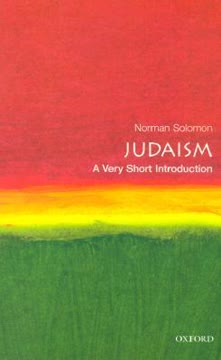
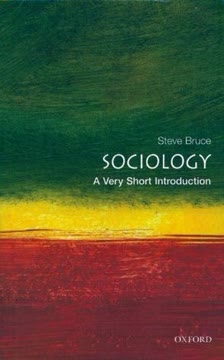
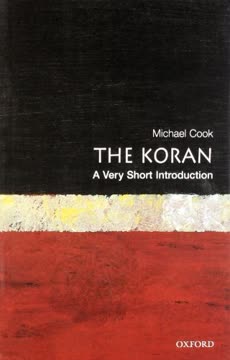
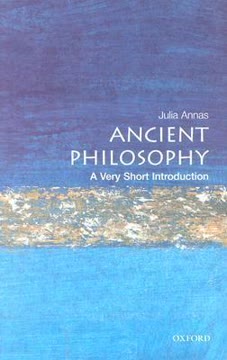
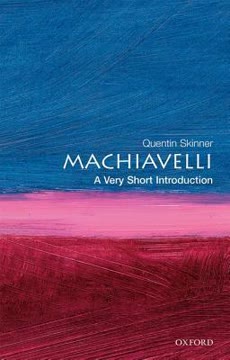
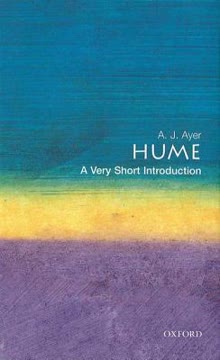

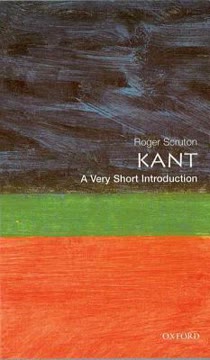
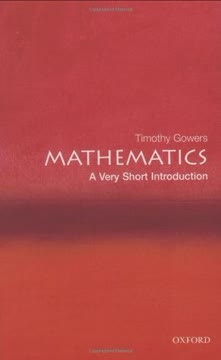
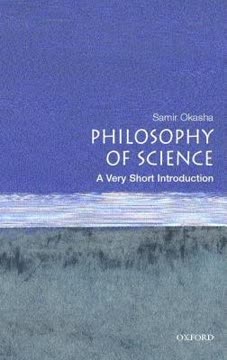
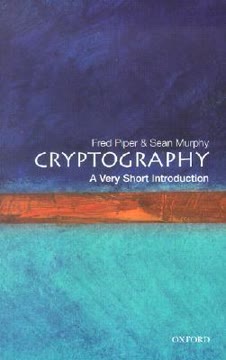
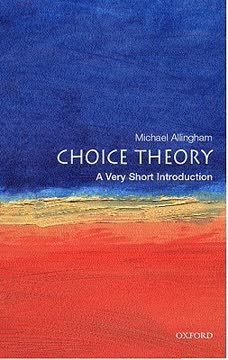
Similar Books
Download PDF
Download EPUB
.epub digital book format is ideal for reading ebooks on phones, tablets, and e-readers.

